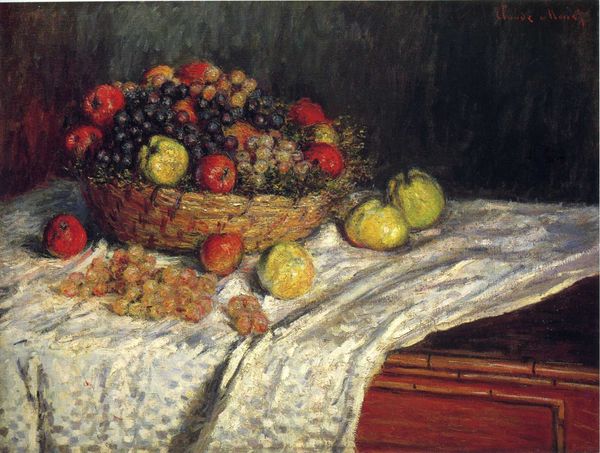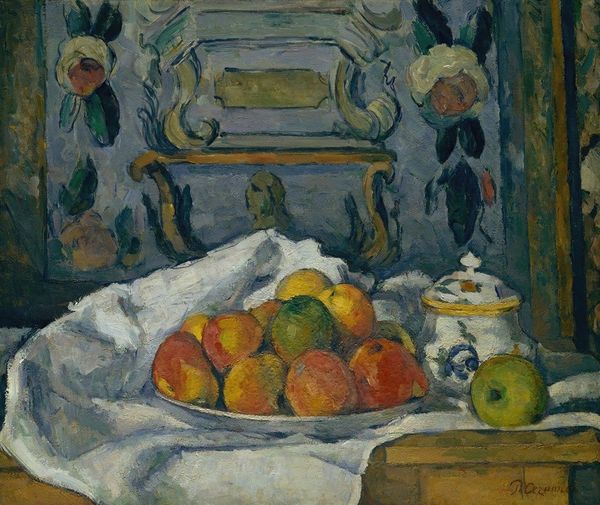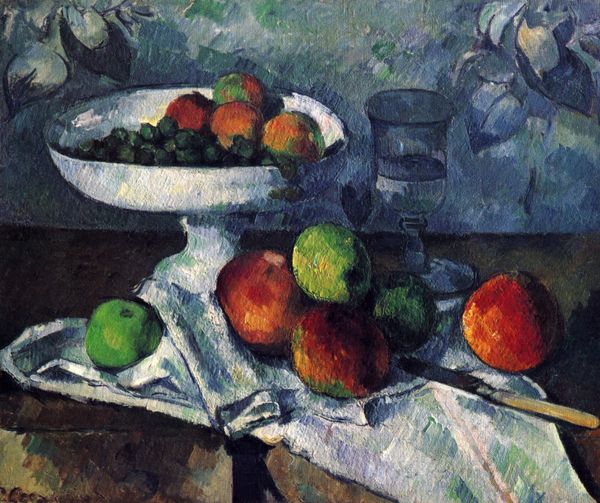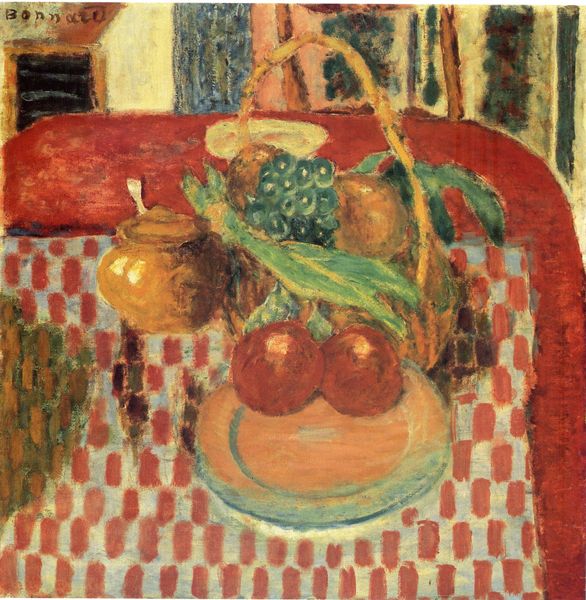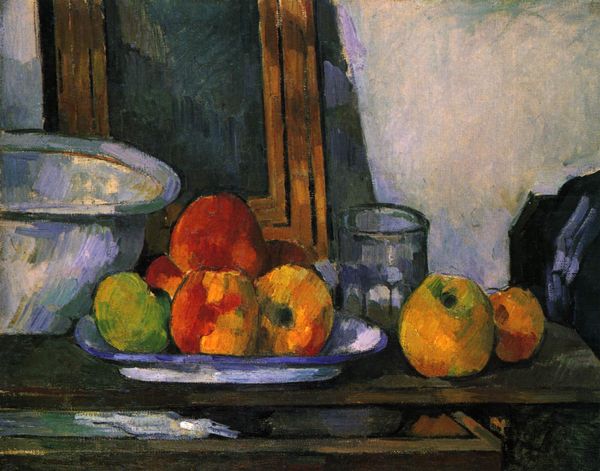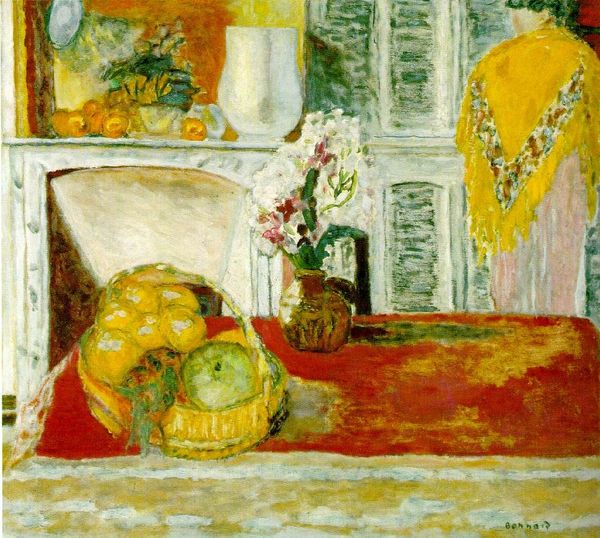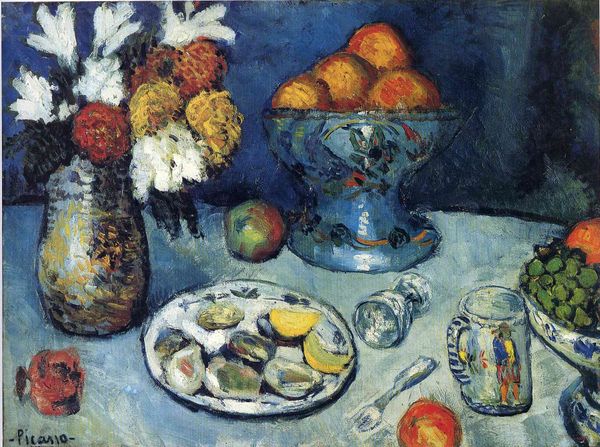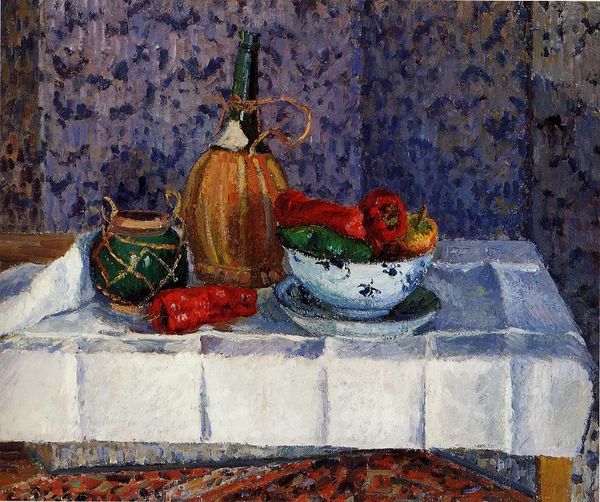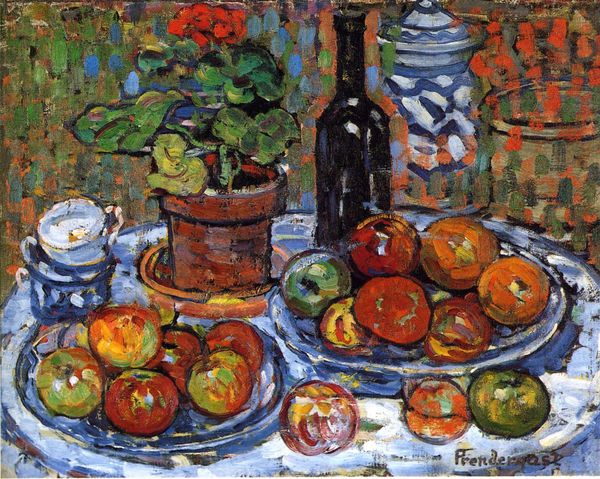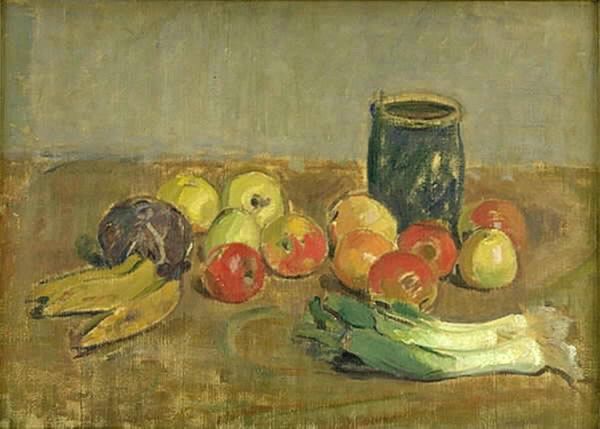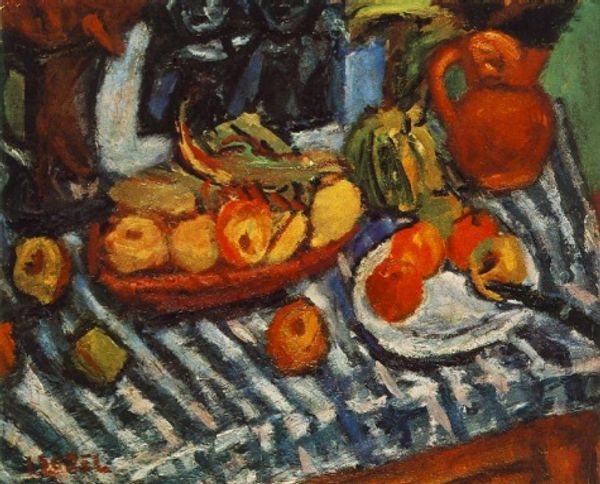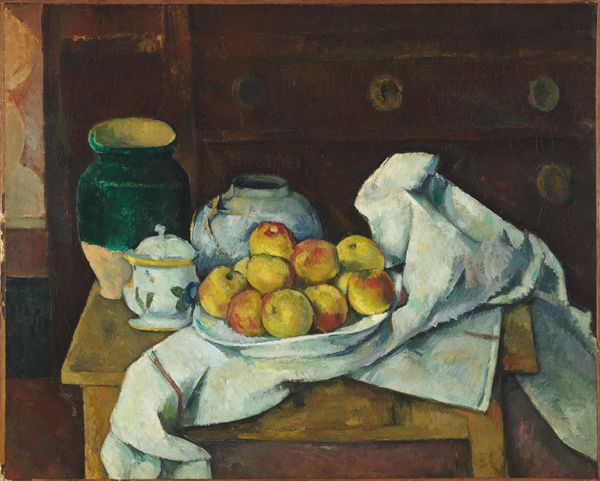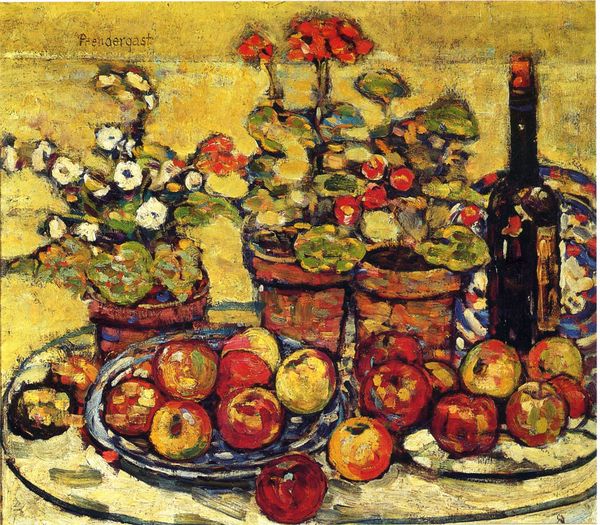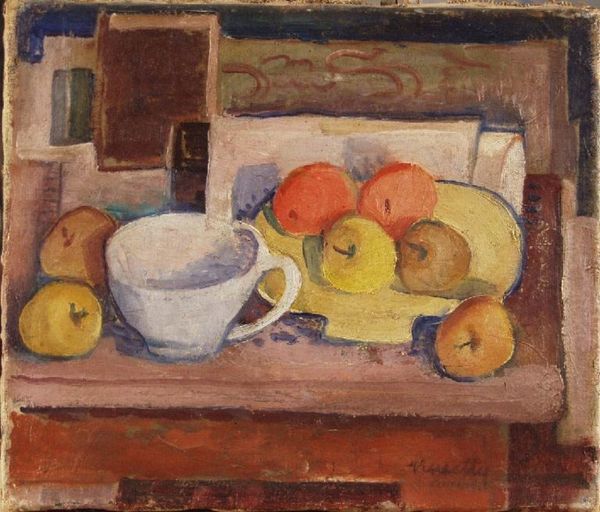
painting, oil-paint, impasto
#
gouache
#
painting
#
oil-paint
#
painted
#
oil painting
#
impasto
#
post-impressionism
Dimensions: 65 x 815 cm
Copyright: Public domain
Paul Cézanne painted Still Life with Soup Tureen in France, but the date is unknown. Cézanne was working in a period when the French Academy still held significant sway over artistic taste and institutional power. In this light, consider Cézanne's still life as a challenge to academic conventions. Look at the lack of clear, continuous lines, the loose brushwork, and the flattening of perspective. These choices mark a move away from illusionism, toward an emphasis on the materiality of paint and canvas. What's more, Cézanne's subjects are ordinary objects – a soup tureen, a basket of fruit, a bottle of wine. He deliberately avoids elevating his subject matter, reflecting a democratic spirit and a shift away from grand historical or mythological narratives. To fully understand Cézanne's contribution, consider researching the history of the French Academy and its influence on the art world. Examine exhibition records, critical reviews, and artists' manifestos. This reveals the ways in which Cézanne and his contemporaries challenged the established order, paving the way for future generations of artists.
Comments
No comments
Be the first to comment and join the conversation on the ultimate creative platform.
